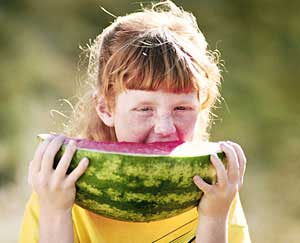Gluten Free
What does following a gluten-free diet mean? That you're embarking on an easy diet with a wide range of health-promoting effects. Instead of dwelling on what you’re giving up, consider that you’re going to enjoy a whole new world of delicious food options to meet your special dietary needs. You’ll be eating seasonally, choosing more fresh fruits and vegetables, focusing on meats, seafood, poultry, legumes, lentils, corn, and rice, and discovering fascinating ancient grains such as quinoa, amaranth, and millet. You’ll be able to eat potatoes, eggs, most cheeses, even chocolate (!)—and enjoy them without guilt because you’ll be taking good care of your body. In fact, you’ll probably end up eating—and feeling—better than ever!
Visit this page for more information about living Gluten Free
---
We carry a large variety of gluten free items, the brands listed below represent just some of the offerings we carry















More Diets

Related Topics
- By Maureen Williams, ND
Vegetarian Diet Helps Kids Stay Slim
It is estimated that one in ten children worldwide is overweight or obese, and in the US the statistics are even worse: one in six children is obese and one in three is overweight. These facts leave many parents wondering what type of diet will best help their children maintain healthy body composition and weight. A new report adds impact to one point of consideration, suggesting that children and adolescents who eat a vegetarian diet have a lower percentage of body fat and are less likely to be overweight or obese than meat-eating children.
Many parents wonder what type of diet will best help their children maintain healthy body composition and weight
Weighing the evidence
The article, published in the American Journal of Clinical Nutrition, included data from a number of epidemiological studies. The authors described the key differences that have been observed in studies comparing vegetarians with non-vegetarians:
- Obesity is less prevalent in vegetarians (which in turn helps decrease risk of certain diseases, such as cancer, diabetes, and heart disease).
- Vegetarians have less body fat, weigh less, and have lower BMI (body mass index, a measure of overweight and obesity) than non-vegetarians.
- BMI increases as the amount of animal products eaten in the diet increases: vegans have the lowest BMI, those that eat dairy and eggs (lacto-ovo vegetarians) and fish-eating vegetarians have medium BMI, and meat eaters have the highest BMI.
Less is known about vegetarianism in children and adolescents, but the existing data point to similar trends: vegetarian children appear to be leaner, have lower BMI and waist circumference, are less likely to be overweight or obese, and have better lipid profiles. Findings from some studies suggest that meats, dairy products, and eggs are specifically associated with increased risk of overweight, while cereal grains, legumes, and nuts protect against it.
Why do vegetarians weigh less?
The study’s authors proposed the following contributing factors to explain vegetarianism’s protective effects against overweight and obesity:
- Plant-based foods are low in protein, fat, and calories but high in many nutrients, complex carbohydrates, fiber, and water.
- Studies in young adults and children have linked high protein intake with high BMI and increased obesity risk later in life.
- High-fiber meals such as those eaten by vegetarians are more filling and reduce between-meal eating.
- The high polyunsaturated fat to saturated fat ratio of plant-based diets has been shown to increase resting metabolic rate, and there is preliminary evidence that a vegetarian diet might also.
Health considerations for vegetarian children
Although a vegetarian diet can be lower in protein, calcium, zinc, iron, vitamin B12, and vitamin D, experts agree that a well-planned vegetarian diet can provide adequate amounts of both macro- and micronutrients, and can be healthy for children, adolescents, and adults.
“In conclusion, obesity represents a significant threat to the present and future health of children and leads to a wide range of physical and psychological consequences,” the authors of the report state. While the decision to make a long-term change to your child’s diet is one that should be made with careful thought toward supporting your family’s specific health goals and may be served by discussion with your healthcare provider, as the the authors suggest, a “plant-based diet appears to be a sensible approach for the prevention of obesity in children.”
(Am J Clin Nutr 2010;91:1525S–9S)











